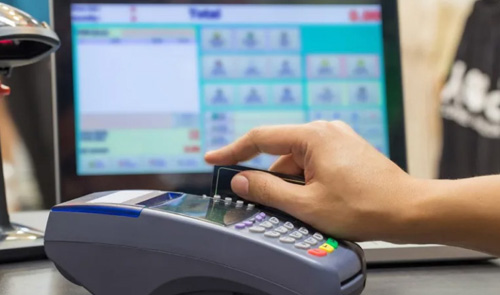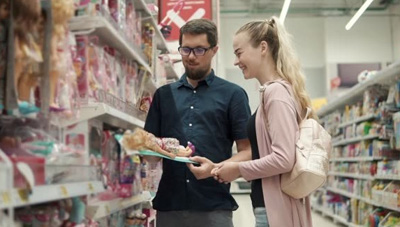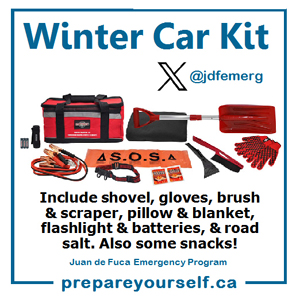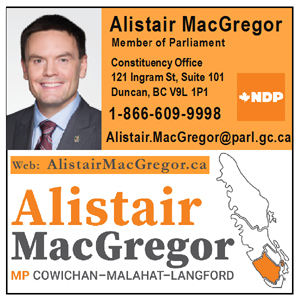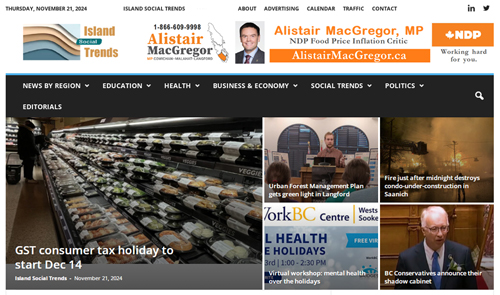Saturday November 23, 2024 | VICTORIA, BC [Posted at 1:34 pm | Updated November 24, 2024]
Political analysis editorial by Mary P Brooke | Island Social Trends
This week Prime Minister Justin Trudeau and Finance Minister Chrystia Freeland attempted a successful political landing with their announcement of a purchase-dependent tax break.
A tax break of not having to pay GST point of sale tax on a range of holiday-season items is to take effect for December 14, 2024 through February 15, 2025 if in fact the idea is passed by the House of Commons next week.
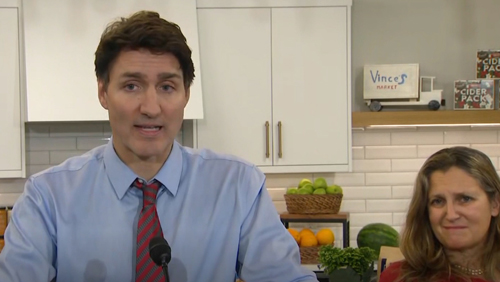
It is likely to pass because the Liberals have the articulated support of the NDP for the upcoming vote. If the Conservatives vote against the GST tax holiday it could make them look bad politically (as Conservative Leader Pierre Poilievre has been talking ‘axe the tax’ for over a years now), but it won’t matter in terms of number of votes needed to pass.
But the proposed GST tax holiday on a select range of purposes will not help the Liberal Government politically and may in fact put another dent in their struggling reputation as to guiding the Canadians out of post-recession economic challenges.
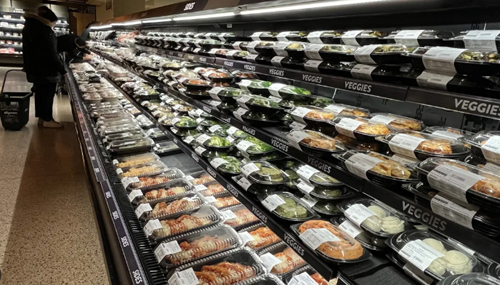
There will be no GST charged on these items: (list as posted on the Prime Minister’s website)
- Prepared foods, including vegetable trays, pre-made meals and salads, and sandwiches.
- Restaurant meals, whether dine-in, takeout, or delivery.
- Snacks, including chips, candy, and granola bars.
- Beer, wine, cider, and pre-mixed alcoholic beverages below 7 per cent ABV.
- Children’s clothing and footwear, car seats, and diapers.
- Children’s toys, such as board games, dolls, and video game consoles.
- Books, print newspapers, and puzzles for all ages.
- Christmas trees.
The tax will help people who have money to spend at Christmas. With the possible exception of things like diapers and car seats for children, the rest of the list is an attempt to get people to spend more — but not until late in the Christmas shopping season and then immediately after Christmas/winter break when people often have maxed out their discretionary spending.
Will there be real savings?
How many more toys can a family buy with the ‘savings’ of no GST on taxable purchases? The margins are slim at best when the family budget is alright so tight that it bites. Do parents even buy toys in-store much anymore, and if buying online will the GST tax holiday apply there too?
The so-called removal of GST from groceries really only applies to prepared foods. People who are already living close to the line are probably cooking at home and avoiding the higher prices of prepared foods. Perhaps organizations and families who are buying food platters for holiday season parties will appreciate a bit of a break, but that’s a limited range of purchases.
Oddities like removing the GST from the purchase of printed newspapers (a product with flagging buyer interest at best) and specifying a limit as to the alcohol content of wine, beer and other alcoholic beverages are contrived and more of a nuisance for retailers than much of any benefit to purchasers.
Will saving on beer or wine help shift a decision to dine out for Christmas, New Year or Valentine’s Day? If it does, that’s not among people struggling most in this economy. One has to have money to spend money on non-discretionary items. A large number of Canadians are living month-to-month and are indebted with credit cards and lines of credit just to make ends meet n an economy that demands a certain level of expenditure just to participate in society (e.g. beyond housing/renting there is grocery, cell phone, transportation, the cost of raising kids, and so on).
The whole thing may be mostly about breaking the logjam in parliament — no legislation has been passed since MPs returned in September. The last day of the fall 2024 sitting of this 44th Parliament is December 17.
Business impact:
There is very little respect for the pressures on small business in this tax holiday idea. For such a short period of time retailers and businesses will need to adjust their point of sale (POS) software programming, their bookkeeping process for GST returns, and frankly go without the cash flow benefit of holding onto collected GST before remittance.
This GST tax holiday is thereby a political fail with the small business community.
The restaurant, fast-food and hospitality sector may gain a few more purchases but the workload to administer the GST break will not feel like a win.
And let’s not be surprised if snack foods (like bags of chips, etc) remain at a high price during the GST-holiday, and one more way for retailers to compensate for not having GST on hold before remittance (which helps with mid-month short term cash flow).
Who thunk it?
Who thought up this tax holiday idea? It serves few and annoys many. Who thought through details like getting a tax-break on the purchase of Christmas trees when December 14 is pretty late in the season to help most people who are already set up for Christmas celebration by that time?
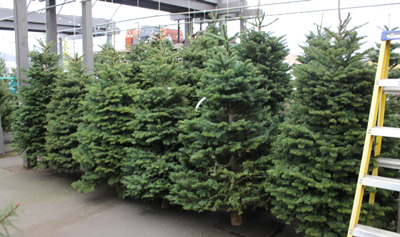
It further underscores how Trudeau himself is out of touch with the daily realities of individuals, families, and small business.
- People with limited disposable income (including students and seniors) won’t really benefit by the GST holiday during mid-December to mid-February. They probably can’t spend enough to feel that a 5% GST saving will make much difference.
- So many groups of people will miss out on the $250 cheque in April 2025. re being missed by this holiday package including students who didn’t have work in 2023 and seniors over age 65 who don’t work (some/many still do).
As Finance Minister, Freeland may have wanted to do a better job of aligning political goals with adding a sugar-coated treat to Canadians that may in fact do more harm than good.
Sadly, for such a valiant attempt, the whole thing seems like tinkering with politics through attempting to have a positive impact on people’s household budgets.
For sure, during economic recovery since the pandemic there has been a sector of the middle class that has not seen ‘affordability’ rebates or other direct benefits. Will this GST holiday by the Liberals help win votes from disgruntled middle class folks who felt left out of a few government hand-outs? Probably not.
Last-minute add-ons?
Citizens’ Services Minister Terry Beech (an MP from BC) was a front-person for discussing this in media after Trudeau’s announcement on Thursday. His ministry may at this point at least want to go back and rethink the range of items that will be GST-exempt.

Some other things that would help people in very real ways at this time by being GST-exempt might be: car maintenance services for winter, winter boots and coats for all ages (not just children), gardening supplies ahead of the spring/summer 2025 food-growing season; and items for emergency kits.
A GST tax-break on these items will provide longer-term support for Canadians and possible spur some purchases/expenditures that might otherwise get set aside in tough economic times.
May backfire on the NDP & Liberals:
The NDP did have influence with this idea… they’ve been asking for a complete removal of GST on grocery (e.g. removing the tax from prepared foods, snacks, and so on) that many people do rely on within their regular grocery shopping.
But the NDP may end up losing some political goodwill by seeing their idea nabbed by the Liberals and contorted in ways that have only delivered frustration for businesses and disappointment for many families who can’t really afford to benefit by this tax holiday. The NDP also usually has a difficult communications challenge to let voters know how much they have influenced benefits for Canadians that the Liberals then take credit for.
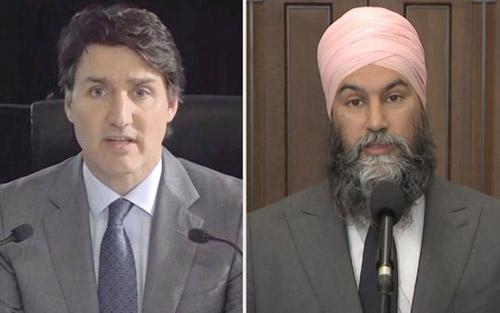
The Liberals have borrowed many ideas from the NDP in order to address the cost of living, including CERB and the grocery rebate. That was a key reason that the NDP held on to the Supply and Confidence Agreement with the Liberals for as long as they could (March 2022 through August 2024).
The GST rebate thing — combined with the $250 payout in April — is one more way for Trudeau to extend his current government as close as possible to being a four-year term. But the few independent voters in the business sector who might have flipped their vote from Conservative to Liberal may be lost out of frustration by this latest attempt by the Liberals to address the cost of living.
Next federal election:
The next federal election is presently scheduled for October 20, 2025.
While various types of antics in the House of Commons this fall (e.g. the Bloc Quebecois demand for an OAS boost for seniors age 65 to 74) have failed to force an early election.
All the talk about a fall 2024 election (or even just a by-election in Esquimalt-Sanich-Sooke in Fall 2024 if Randall Garrison MP had retired early) has fizzled out.
Are the Liberals hoping to pull the plug on the current 44th Parliament in May, after distribution of one last hand-out to lower-income Canadians (the $250 bonus will go to anyone who worked in 2023 and earned less than $150,000)? That hardly seems worth the trouble, as Parliament is only scheduled to sit until June 20, 2025, after which the scheduled election date would kick-in anyway.
===== RELATED:
- GST consumer tax holiday to start Dec 14 (November 21, 2024)
- Alistair MacGregor: what the NDP did for Canadians in 2023 (December 31, 2023)
News sections: POLITICS | CANADIAN FEDERAL ELECTION 2025 | ECONOMY & BUSINESS | EDITORIALS


